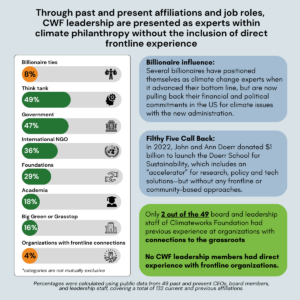We all recognize the importance of knowing whether or not what we do in our day-to-day work actually has any impact. In 2010, NCRP worked with TCC Group to conduct our first-ever organizational evaluation. It demonstrated that our work was influencing how philanthropy is practiced in our country and it also showed us how much more we needed to do. I am pleased to share with you the results of our second impact evaluation completed by TCC Group in March 2014.
Here is a copy of the executive summary of the report.
Some of the highlights include:
- There has been a notable increase in the number of philanthropies and nonprofits using NCRP publications. In 2014, rates for grantmakers increased by 19 percentage points from a baseline of 32 percent, and among nonprofits by six percentage points from a baseline of 44 percent.
- Funders rank NCRP’s value to the field alongside other infrastructure groups. 58 percent of nonprofits agreed or strongly agreed that NCRP has raised the level of robust debate in the sector.
- NCRP is viewed as a constructive provocateur for the sector by a majority of philanthropies (66 percent) and nonprofits (65 percent).
- More than half of nonprofits feel that they are part of a movement to transform philanthropy.
- Funders are having more conversations about good grantmaking practices recommended by NCRP. Close to 50 percent of surveyed philanthropies advocate for adoption of the criterion to provide 50 percent of grant dollars for the benefit of underserved communities.
Our work is helping make philanthropy more responsive to those with the least wealth, opportunity and power. NCRP’s Philanthropy’s Promise initiative is a solid indicator of our reach; we now have over 175 signatories and that number is growing. Our publications are reaching more people in the sector and are being used by nonprofits to advocate for the kinds of funding that will help them achieve their missions. Funders, too, are using our materials to engage in discussions about how to change strategy to bolster impact.
But as we celebrate our successes, we are reminded of how much work remains to be done. Social justice work needs more funding. Some underserved communities remain a low priority for the sector writ large. As NCRP uses the findings of this evaluation to see where and how we can help improve philanthropy, we are mindful that the changes we hope for will not occur overnight. Structural disparities are long-standing and rigid. We will continue to advocate for a more responsive philanthropic sector that will transform our society to one that is more just, inclusive and equitable.
Aaron Dorfman is executive director of the National Committee for Responsive Philanthropy (NCRP). Follow NCRP on Twitter (@ncrp).
































































































































































































































































































































































































































